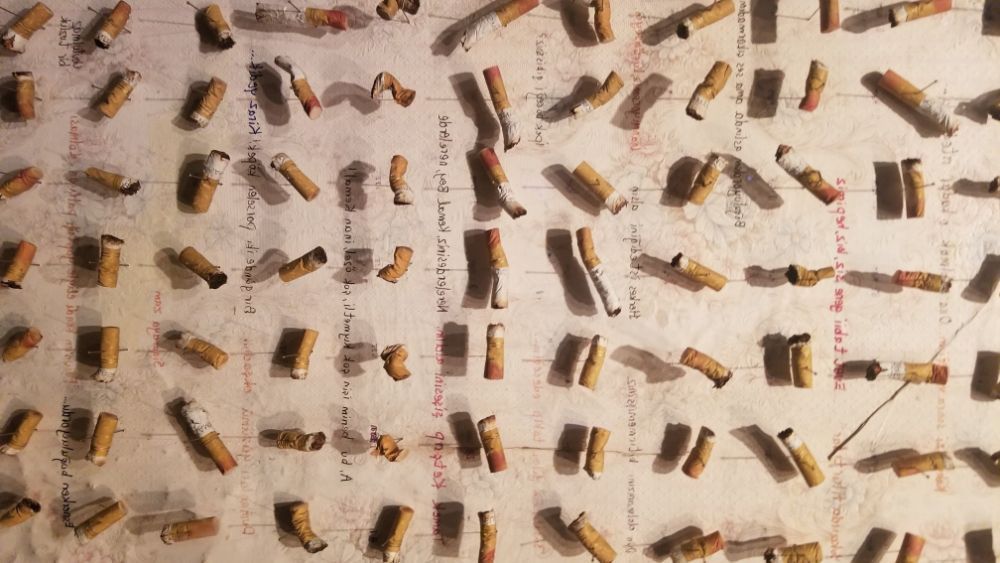About the course
In recent decades, materiality and material culture have become increasingly important sources of theory in a range of academic disciplines outside of archaeology, including history, cultural anthropology, and sociology. Material items are viewed as containers of collective and individual memory, as devices capable of triggering emotional, psychological, and even physiological reactions, and as tools for expressing or retaining identity and narratives. At the same time, the cross-disciplinary field of memory studies has grown out of psychology, cognitive science, history, museum and archive studies etc., and theorized and problematized the processes of memory, the creation of memory and concepts such as collective memory, bringing a deeper analysis to the creation and perception of the past in self-definition and identity processes. This scholarship has found an outlet in fields like archaeology, but also in literature, film studies, art, etc.
These different disciplinary and creative foci allow archaeology to enrich and sharpen the theoretical and methodological approaches to the material culture that always has been at the center of our discipline. In particular, these approaches allow us to reach further into the ranges of memory, emotion and affect of lived experience in the past and in the present. The concepts of memory and emotion are also useful when understanding current events surrounding commemoration, identity politics and memory laws, that all in different ways connect materiality, memory and emotion to political projects in Europe and elsewhere.
Through the analysis of material culture—from small objects such as heirlooms or everyday tools, to large structures such as monuments or built environment—the course proposes an open and explicitly cross-disciplinary perspective—to explore the connections between materiality, emotion, and memory in the lived experience of the past and present.
Course work
The course will follow the Dialogues with the Past model and consist of lectures, workshop activities, and field trips in Istanbul that are selected to prompt cross-disciplinary and creative exploration and discussion of the topic of the course.
Before the course starts, each PhD student will prepare a paper for pre-circulation, addressing their research project in relation to the course theme. These papers will be presented in research seminars with a short presentation, followed by a discussion structured by a designated opponent. Thematic discussion will be emphasized and scaffolded with instructions to the opponent to formulate exploratory discussion questions.
The faculty members will each give a lecture (ca. one hour), presenting different perspectives on the theme of Materiality, Memory and Emotion tying it to their own scholarship as archaeologists. The faculty will also participate in the workshops by providing feedback on the student presentations and support their work process.
In addition to the seminars and lectures, learning activities will also be scheduled outside of the classroom.
- ½ day excursion 1: We will make a field trip to The Museum of Innocence and use it as a laboratory to discuss the ways in which material items tell stories and encapsulate and transfer memory. To prepare for this visit, each student will read the book (The Museum of Innocence, by Orhan Pamuk) and select one chapter. At the museum we will visit the display cases relating to each of the selected chapters and the student will briefly present the contents based on their reading, and then we will all discuss the items exhibited there and how they relate to the themes of the class.
- ½ day excursion 2: Discovering the city through its materiality. The students (in groups of 2 or 3) will pick an area or a site (in consultation with the faculty) to visit and document through a series of photographs that focus on specific items or materiality that they discover as significant for their experience of the place. These small photo projects will be presented on the last day of the course and serve as a departure for reflection on how the course content has affected our way of seeing and processing the materiality around us.
Lecturers



Credits: 7 ECTS
Location, travel and costs
The Graduate School will finance and arrange travel and accommodation, as well as supply a daily allowance during the workshop for all participating PhD students who are part of the Dialogues With the Past network. Two and two PhD students will share a room.
Registration
The Graduate school invites all registered PhD students to apply for participation. Please follow this link to apply for the course (in English only). From these applications, 15 PhD students will be admitted to the workshop.
For more information please contact: oliver.reiersen@iakh.uio.no
Important dates
Application for participation: February 28, 2022. Confirmation on your participation will be sent out shortly after this date together with a reading list.
Submission of working papers (10 pages, Times New Roman 12, Spacing 1,5): May 2, 2022.
